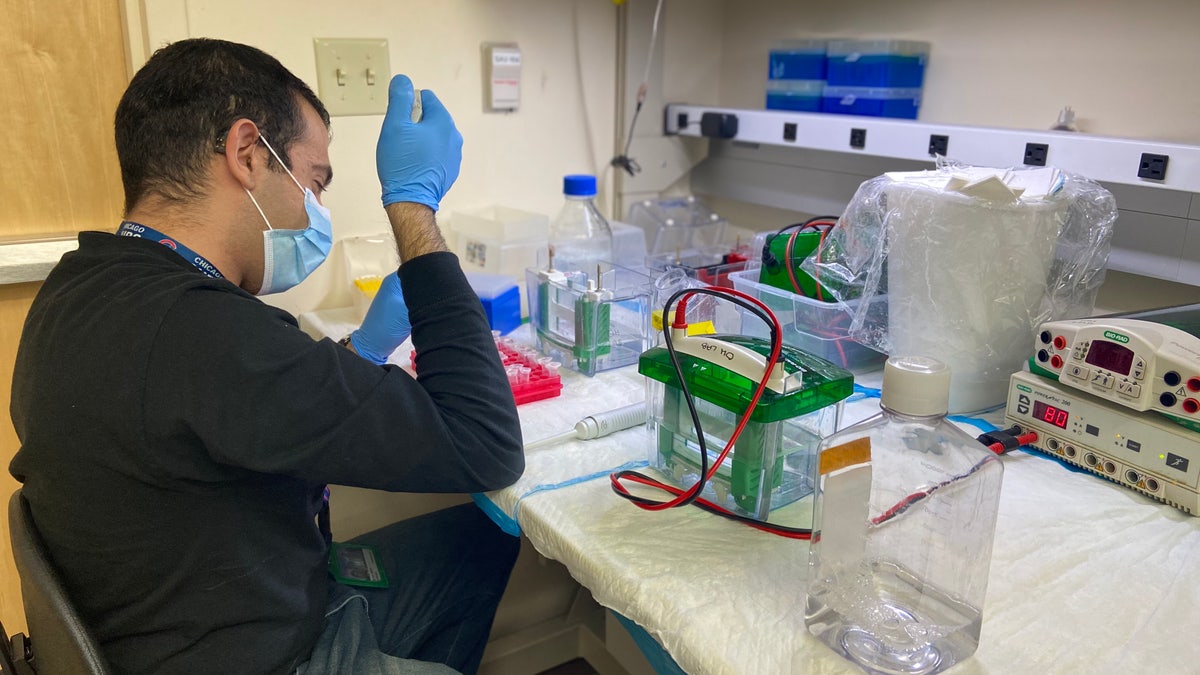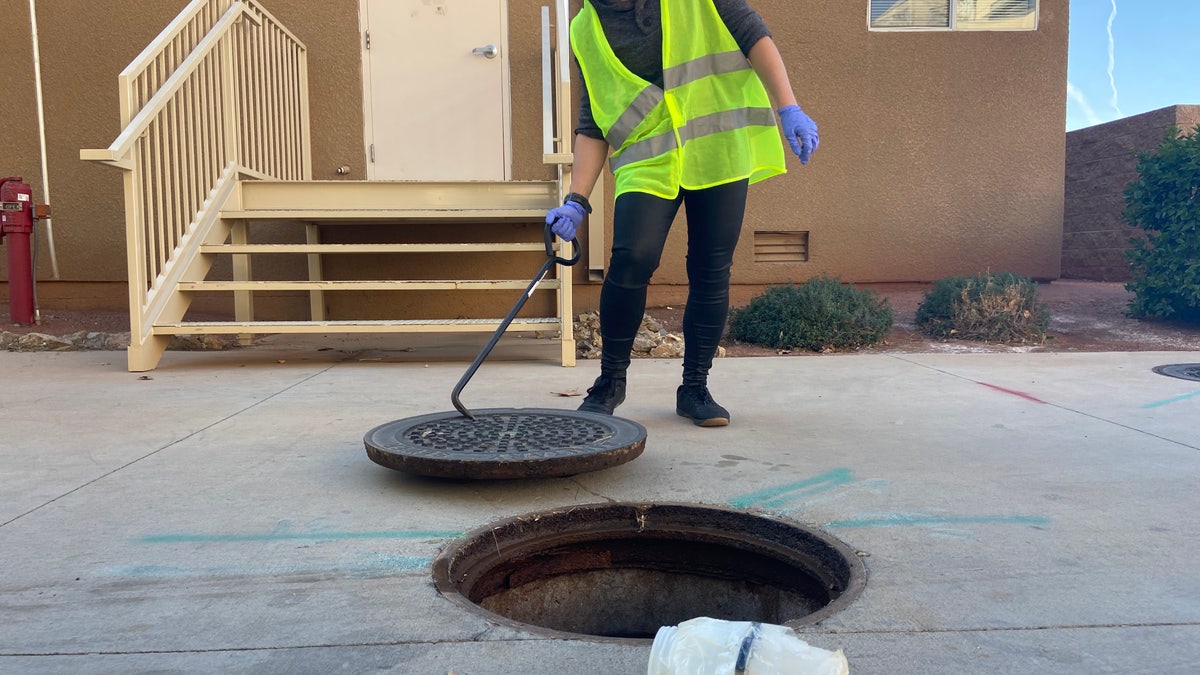Wastewater can show presence of COVID-19
Scientists in southern Nevada and across the country can detect COVID-19 in a community before someone tests positive.
LAS VEGAS, NEVADA – The race to track the spread of COVID-19 is taking scientists into the sewers.
They’re using wastewater to detect the virus even before people start visiting doctors and hospitals.
The state of Nevada announced its first known case of the omicron variant on Dec. 14 after a woman tested positive.
Scientists at the University of Nevada-Las Vegas detected the variant a week before.
"As we bring it up, we harvest about 500 milliliters of sewage, and this is what you’ll see," said Dr. Edwin Oh, an associate professor at the UNLV School of Medicine and the Nevada Institute of Medicine.
OMICRON COVID-19 VARIANT FOUND IN WASTEWATER OF CALIFORNIA, COLORADO, TEXAS CITIES
For the past two years, Dr. Oh and his students have spent hours each day analyzing wastewater to see how much of the virus is in southern Nevada.
"We can go to a stadium and we can tell you that in the stadium, you have extraordinary levels of a virus, therefore it could be a superspreader event," Dr. Oh said.
Under the wastewater surveillance program, UNLV and the Southern Nevada Water Authority collect samples from sewers and water treatment facilities.
Then, they test the samples in a lab.
"In the simplest sense, everybody poops, and so we get that information regardless if they’re going out and getting those clinical tests," said Dr. Daniel Gerrity, the SNWA’s principal research lab scientist. "It’s not just something we want to send down the pipe and get rid of. It’s a treasure trove of information."

Students at the University of Nevada-Las Vegas test wastewater samples to detect the presence of COVID-19. in the area. (Ashley Soriano/Fox News)
Scientists have been able to detect new variants of the virus weeks or even up to a month before anyone receives a positive test result.
Virus levels may rise in wastewater before an outbreak is detected because people can shed the virus in their waste several days before they might show symptoms and get tested.
'CONCERNING' LEVELS OF COVID-19 DETECTED IN FLORIDA COUNTY WASTEWATER, OFFICIALS SAY
"Having that wastewater surveillance, you’ll know without testing anyone whether you have a pathogen or you have a drug circulating in that community," Dr. Oh said.
The most shocking moment was when Omicron appeared.
"For Omicron, in certain cities, we went from 20% of a community having Omicron all the way to 95% in a week, and that was a big surprise for us," Dr. Oh said. "It just shows how quickly a pathogen can enter into a community and just simply take over."

Students at the University of Nevada-Las Vegas collect wastewater samples to test for the presence of COVID-19. in the area. (Ashley Soriano/Fox News)
Wastewater surveillance has been used before in discovering cases of polio and the presence of drugs.
Now, it's becoming more widespread in the U.S. to fight COVID-19.
At least 34 states and the District of Columbia have a program like this.
The CDC also has its own National Wastewater Surveillance System.
The technique helps narrow down where a majority of the virus is, and for tourist cities like Las Vegas, it’s a good indicator of who is infected.
MISSOURI LAB DETECTED DELTA COVID-19 VARIANT IN WASTEWATER WEEKS BEFORE FIRST CASE WAS REPORTED
"Our hypothesis right now is that we’re getting a significant fraction of SARS-COVID-2 nucleic acid from the people who are visiting and not just the local community," Dr. Gerrity said. "In more recent months, tourism is almost back to its levels of pre-pandemic time. What we’ve seen is that we have higher concentrations in the wastewater than we had seen previously."
Wastewater surveillance has also been used to spot COVID-19 upticks in college dorms, prisons and other large settings.
They expanded the wastewater surveillance program to monitor flu strains.
One question these scientists get a lot is whether you can contract COVID-19 from wastewater.
The answer is no.










































